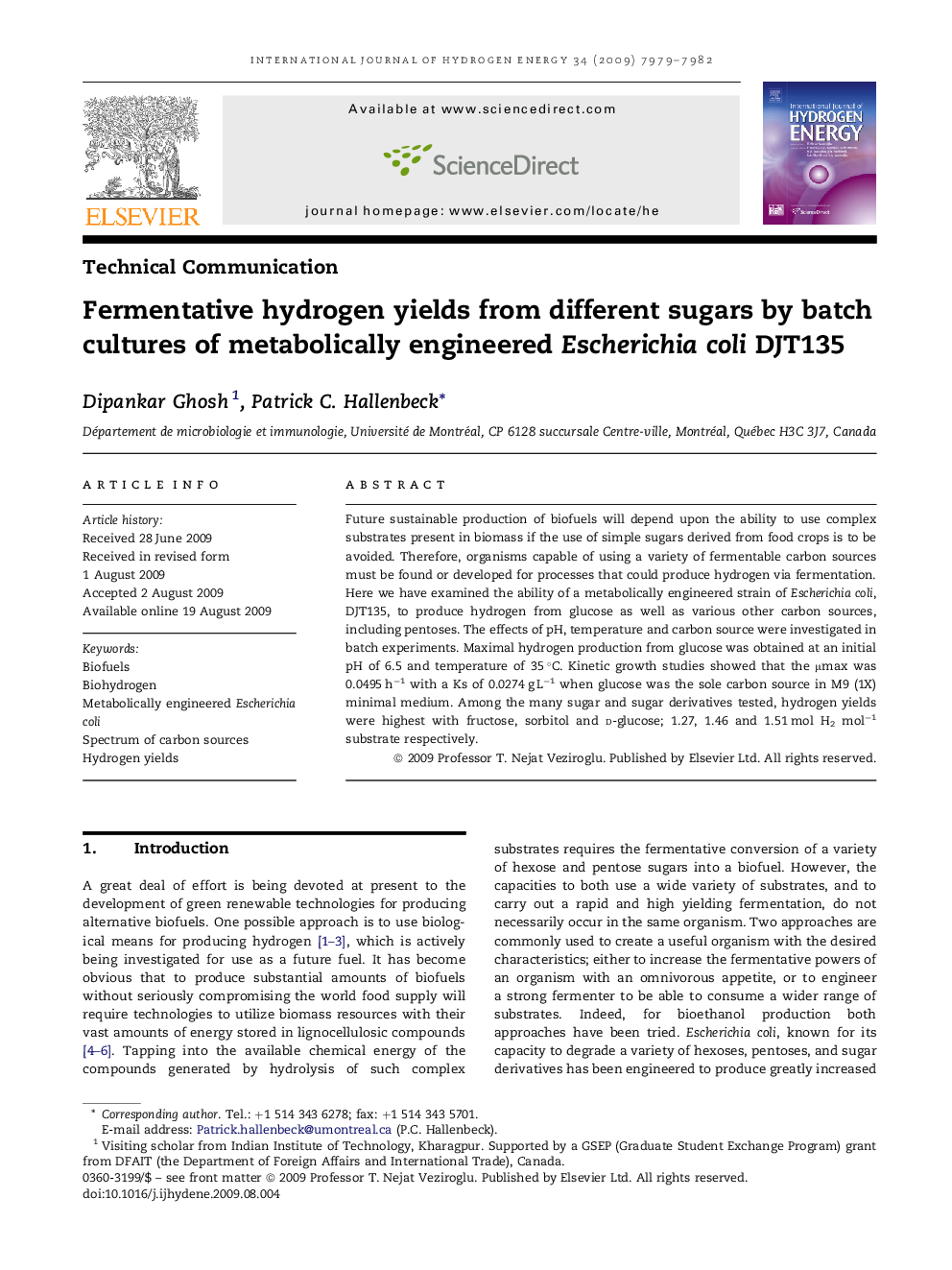| Article ID | Journal | Published Year | Pages | File Type |
|---|---|---|---|---|
| 1283054 | International Journal of Hydrogen Energy | 2009 | 4 Pages |
Future sustainable production of biofuels will depend upon the ability to use complex substrates present in biomass if the use of simple sugars derived from food crops is to be avoided. Therefore, organisms capable of using a variety of fermentable carbon sources must be found or developed for processes that could produce hydrogen via fermentation. Here we have examined the ability of a metabolically engineered strain of Escherichia coli, DJT135, to produce hydrogen from glucose as well as various other carbon sources, including pentoses. The effects of pH, temperature and carbon source were investigated in batch experiments. Maximal hydrogen production from glucose was obtained at an initial pH of 6.5 and temperature of 35 °C. Kinetic growth studies showed that the μmax was 0.0495 h−1 with a Ks of 0.0274 g L−1 when glucose was the sole carbon source in M9 (1X) minimal medium. Among the many sugar and sugar derivatives tested, hydrogen yields were highest with fructose, sorbitol and d-glucose; 1.27, 1.46 and 1.51 mol H2 mol−1 substrate respectively.
